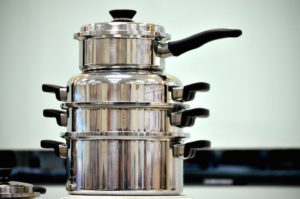From breads to pastas to cakes, gluten-free alternatives are being sold in all shapes and forms. Supermarkets, cafes and delis are now jumping on the gluten-free trend train and boasting wheat-free replicas of all our favourite carb-laden delights. With the sudden spike in conversation around food intolerances and sensitivities, it does make one wonder; should I also be going gluten free?
By Jana du Plessis
‘Gluten’ refers to the general proteins found in wheat and related grains. These proteins are responsible for the elasticity of dough, its capacity to rise, and its chewy texture. Despite gluten being one of the most heavily consumed proteins on the planet, some sensitive bellies have difficulty digesting these proteins and suffer from discomfort after the ingestion of glutenous foods. Coeliac disease refers to gluten-intolerance in its most severe form. After ingesting gluten, the body mounts an autoimmune attack on the small intestine in an attempt to rid the body of perceived toxins. This immune disorder leads to inflammatory conditions within the body that prevent the proper absorption of nutrients. Coeliac disease sufferers have little choice but to ditch their daily trip to the corner bakery and opt for a strictly gluten-free diet.
Gluten-free living is being hailed as the most recent health-conscious lifestyle trend, but going gluten-free does not necessarily mean making wiser, healthier dietary choices. Although gluten can be a source of digestive woes for some, gluten in itself is not considered ‘bad’ or unhealthy. Many foods containing gluten, such as oats, rye and barley, are host to a range of essential nutrients that make for a well-rounded diet. Oats are packed with fibre and a hefty amount of protein, vitamin B-rich rye provides sustenance for cell metabolism, while barley offers your body a much-needed supply of manganese, chromium and magnesium.
Our suggestion? Be mindful when eating and take note of how certain foods make you feel. If you feel bloated or uncomfortable after a gluten-heavy meal, try eliminating those particular foods from your diet for a few weeks and see how your body responds. Or perhaps eating slightly smaller portions of your favourite glutenous indulgences may be the answer to avoid feeling sluggish and uneasy. For those who do not have any problems with eating gluten, don’t be too quick to remove it from your diet, you don’t want to side-step valuable vitamins that may benefit your overall health.




